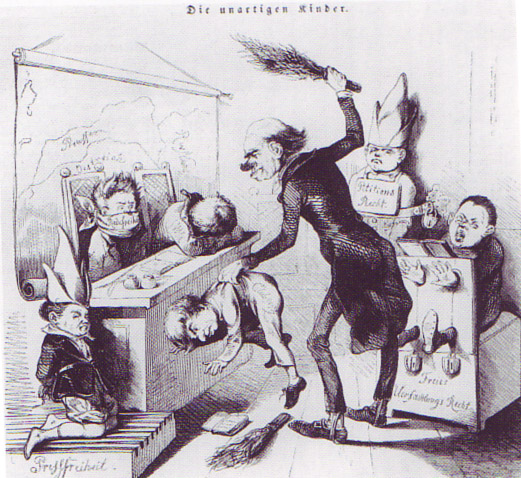"What we found is strong evidence in favor of loss aversion," he said. "Teachers who were paid in advance and [were] asked to give the money back if their students did not perform — their [students'] test scores were actually out of the roof: two to three times higher than the gains of the teachers in the traditional bonus group."Yowza. According to this fascinating piece by Cass Sunstein, my bias against teacher reform has me pulling only the things I want to hear, or the fact that fit with my pre-conceptions out of the story. Thus, I do indeed find the story appalling, and am thus frantically searching my brain for how this story might turn out to be false. Because, after all, it seems to show that teachers are actually dramatically underperforming, and apparently simply out of lack of motivation.
OK, so wait a minute. Teaching is one of the hardest jobs out there. You have to be incredibly motivated to put up with it to begin with. I have 120 students, half of whom are so-called "reluctant learners", which means if I don't literally walk around and constantly remind them to take their notes, they won't, and thereby failing my class.
And the study apparently found that promises of performance rewards had little effect on test scores, i.e. teaching. But gains two to three times higher? Without seeing the actual study (I have to get to work!), I'll allow myself to remain agnostic.
But regardless, what really got me in the piece was the concept of "loss aversion", which is a fancy way of describing something all teachers have come to understand about what teacher reform is all about: fear. This study is essentially saying that when teachers fear losing compensation, they teach better, leading to better scores for their kids. More fear = better results.
Really? Given the insanity of modern day teaching, how incredibly inequitable it is as a profession, in terms of the job at "good" schools being exponentially easier than that at "poor" schools, and the amount of pressure teachers are under at any given second of the day, a study points to the efficacy of more fear?
And let's be clear about what the mechanism of fear really means. A teacher consciously, or unconsciously, when teaching, hears a little voice in her head that says, you're going to lose money if you don't get this right. It's not an externally transmitted physical pain, like an electric shock, but it is pain nonetheless. And it is a pain that lingers, a kind of emotional anguish. "Am I doing a good enough job? Was that lesson good enough? Oh, I hope they pay attention." And considering the myriad factors in a child's education that are completely beyond a teacher's control - did the child get yelled at this morning and is now in a foul mood, is the child nervous about neighborhood bullies, does he or she have a mental block or emotional issues? - the fear ends up bleeding into a generalized anxiety that keeps many a teacher up at night.
Wait a second. That kind of fear is already there, with or without the reward. Teachers fear that their students aren't going to be successful on a daily basis. At least I do. In fact, for my mental sanity, the less I worry about my students, the better I am able to be objective and focus on what really matters - planning good lessons, being prepared and organized, getting good sleep.
So, I'm supposed to buy the notion that aside from all my sacrifices I make on a daily basis to meet the needs as best as I can with my 120 students, each of them with different specific needs, that the introduction of even more fear is supposedly going to make me a better teacher.
Hmmm.

Thanks for your full answer to my Sept 15 comment. Have become too busy myself. Do want to return with what I hope will be additional, focused counterpoints to the idea that society/capitalism is so much to blame for low SEC when compared with the power of culture [and yes, with the negatives of a cuddling govt]. Have I read that CA has one third of all the food stamp recipients in USA?! I'd be curious what you think about VD Hansen's explanations for the deterioration of CA's economy and lifestyle for so many in the middle?
ReplyDeleteCordially,
A